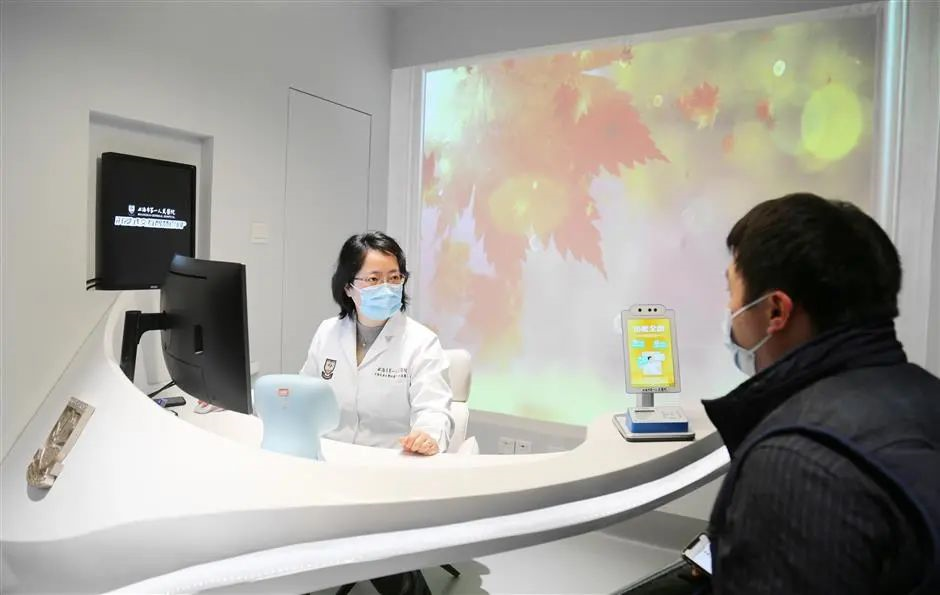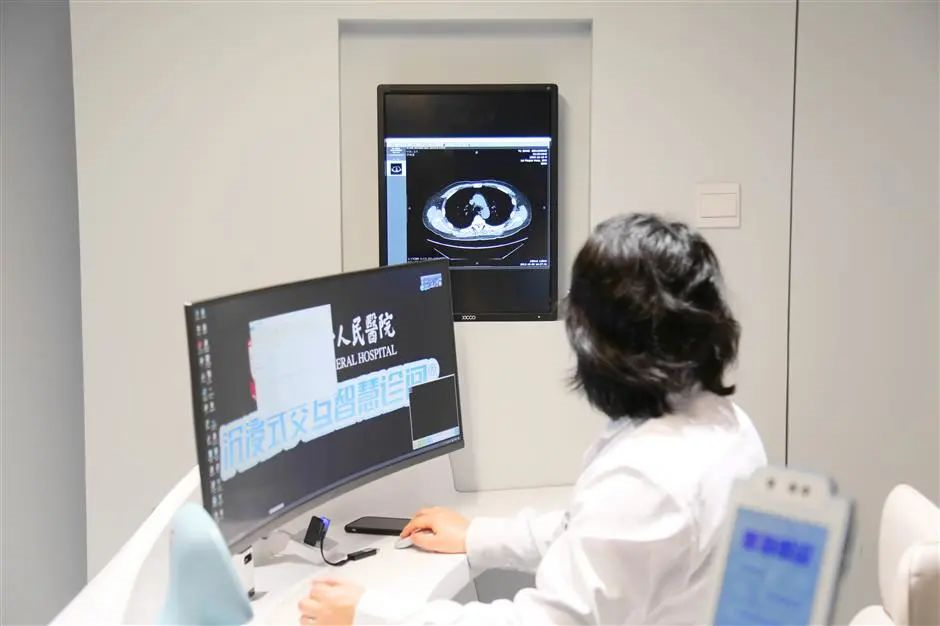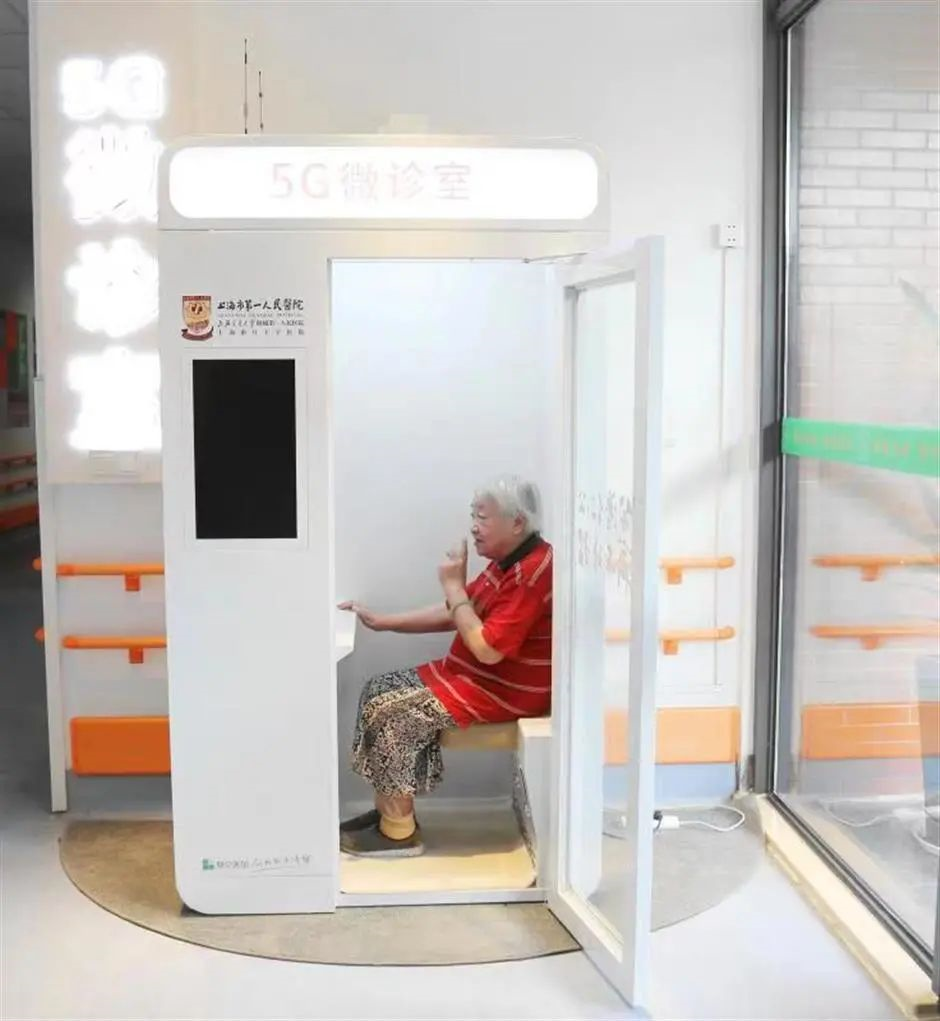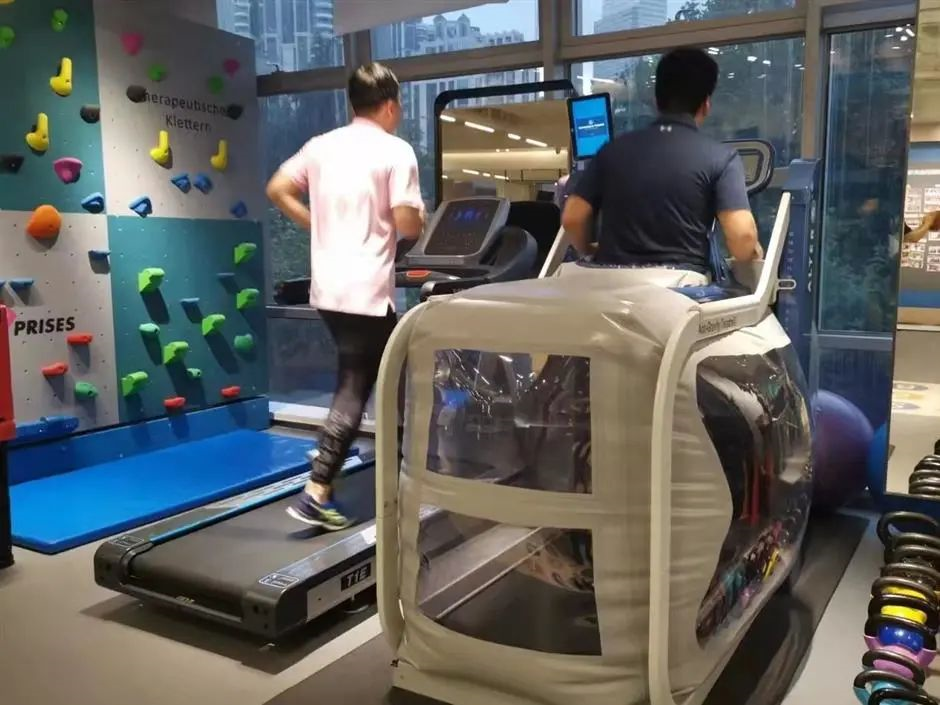- News
Digital Medicine Offers Patients Better Experience

Shanghai General Hospital is building a model of "future hospital."
Technology changes life. Not only in the way we live, but also in the way we are treated.
Smart technologies, being applied by Shanghai medical institutions, are making medical process more convenient, more patient-centered and more efficient.
Intelligent treatment
At Shanghai General Hospital, an immersive and intelligent consultation room, an intelligent table and a digital pre-consultation system have been introduced this year as new measures to build the medical facility into a model of "future hospital."
After scanning the QR code of a patient's medical smart card, the system will call the name of the patient to enter the consultation room while the patient's previous medical record is displayed on the doctor's computer. At the same time, all the information is shown on another smaller screen in front of the patient.
After the patient lies on the bed for checkup, light and curtains are automatically adjusted under the doctor's oral instructions.
After all the checks, the doctor makes a prescription on the computer while the patient can see the list of drugs and tests that have been prescribed at the same time on the small screen and pay the bill by smartphone.
Then the screen shows where to do the tests, which pharmacy window the patient can take the medicine from and when the follow-up visit is reserved.
The whole process is completed in the consultation room, where patients are given very clear directions about what they should do next and where, hospital officials said.

A digital screen shows the patient's CT scan.
An intelligent navigation system is also available on phone, which acts like a GPS to help patients.
Artificial intelligence is an important part of the smart hospital, as the system can make a reasonable arrangement of all tests in line with requirements. For example, all tests that need an empty stomach are arranged on the same morning.
The arrangement on hospitalization and surgery is also the best solution through algorithm.
Internet of Things is widely used. The soap machine in the consultation room does the math on doctor's frequency of hand-washing and analyzes data between the washing frequency and the number of patients to check whether the doctor has washed hands properly. This is very meaningful in the prevention and control of infection in the hospital, officials said.
"The intelligent medical service has both online and offline parts. The Internet Hospital is not just a combination of online reservation, consultation, payment and medical record check. We have expanded its content continuously," said Chai Shuang, director of the hospital's patient experience department. It is the first hospital to establish such a department in the city to enhance health reform and revival in line with patients' demands.
"We are taking aim at the difficulties during patient's medical treatment. For instance, we have added a cloud company, which allows elderly patients' children or nursing home staff to participate in online consultation, as health manager. The three parties, namely elderly patients, doctors and health managers, can achieve online interaction," Chai said.
"Patients' children can have a timely and better understanding of the seniors' health condition and help enhance the latter's health management."
The hospital is also providing its intelligent service at nursing homes, offering long-distance medical consultation for those who are bedridden. Elderly people can achieve the whole process of consultation, prescription, drug delivery and health education without leaving their rooms.

An elderly woman receives remote consultation thanks to the Internet Hospital project.
Intelligent rehabilitation
Digital means is also being used for rehabilitation, a lesser-appreciated aspect of recovery after surgery.
"Rehabilitation is a very important part of medical treatment. Orthopedists only fulfill part of the treatment. In terms of bone surgery, orthopedists are responsible for 51 percent of the treatment effects, while effective rehabilitation takes up the rest. Rehabilitation should be part of the whole process of treatment and regular and proper rehabilitation can help achieve better results from surgery," said Ma Xin, vice president of Huashan Hospital. "Shanghai has been taking a leading position in introducing digital and intelligent rehabilitation."
Clinical practice is the core, while digitalization is the tool to provide patients with innovative and evidence-based therapy.
At Shanghai Medmotion Rehabilitation Clinic, digital therapy has been widely used in rehabilitation process.
It is a psychological therapy that is provided online or through mobile applications, with the support of a therapist.
Through wearable sensors and a professional rehabilitation plan, about 70 percent of patients can do training at home with software instructions. The software can do real-time monitoring and revival through data from the sensors, according to Zhao Qingyi from the clinic.
"Digital rehabilitation can benefit more patients and relieve the lack of medical resources, allowing patients to enjoy high-end rehabilitation service any where and any time. Experts also can achieve comprehensive patient management through online and offline service."

A patient uses a special machine for rehabilitation training at Shanghai Medmotion Rehabilitation Clinic.

A patient does exercise under the guidance of a therapist.
